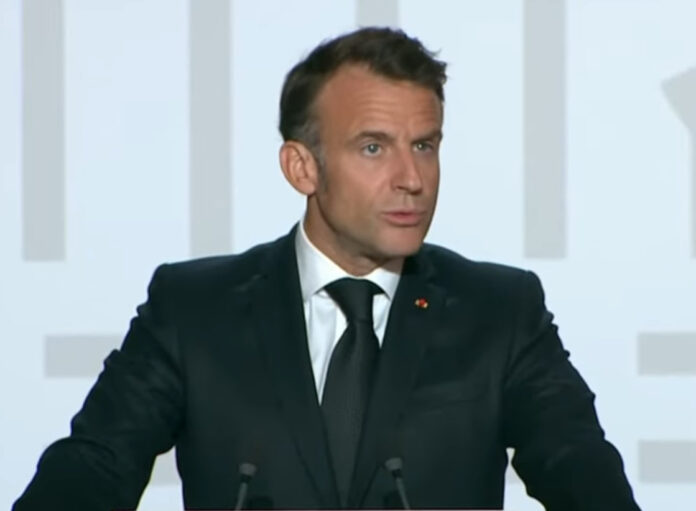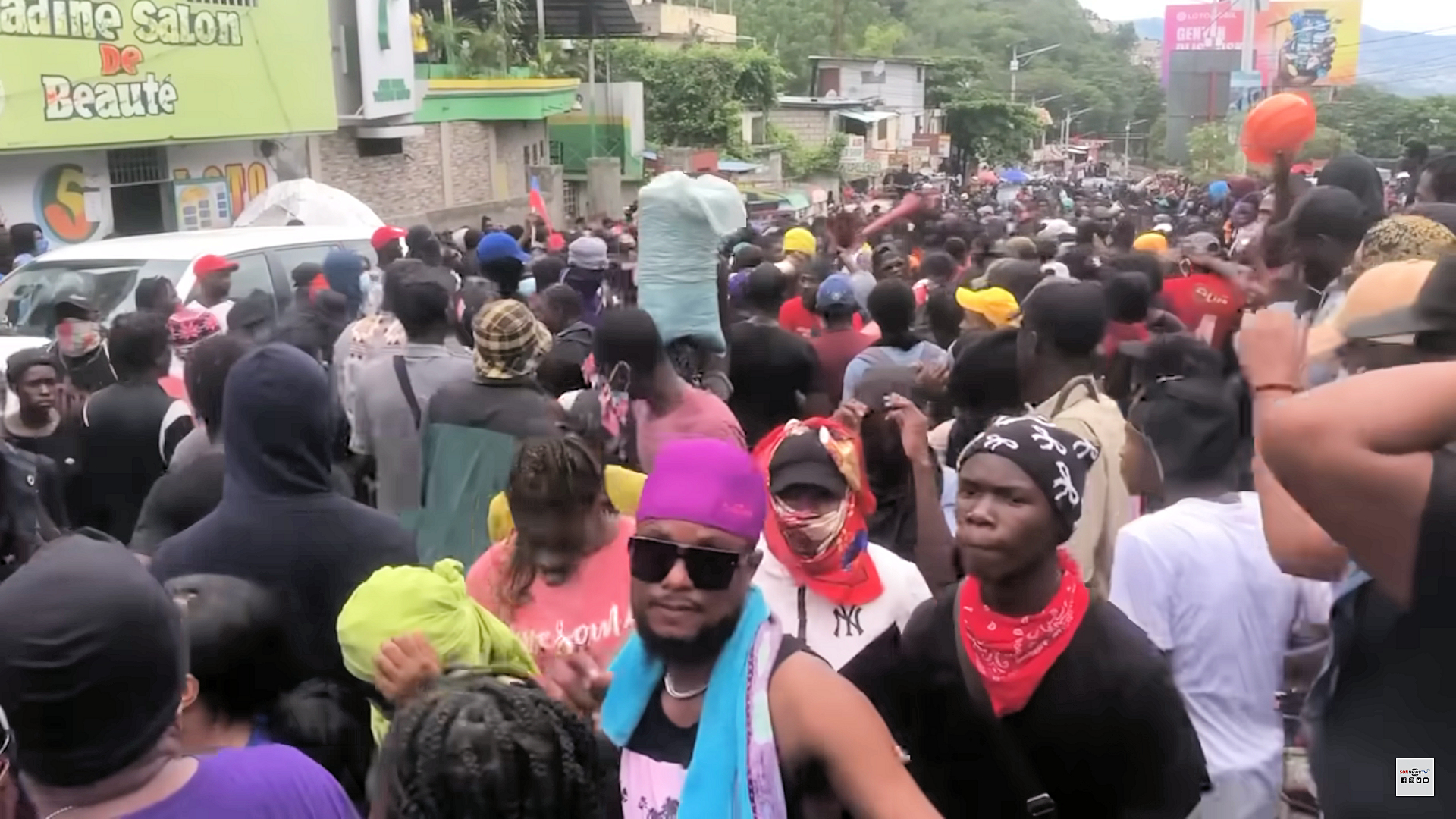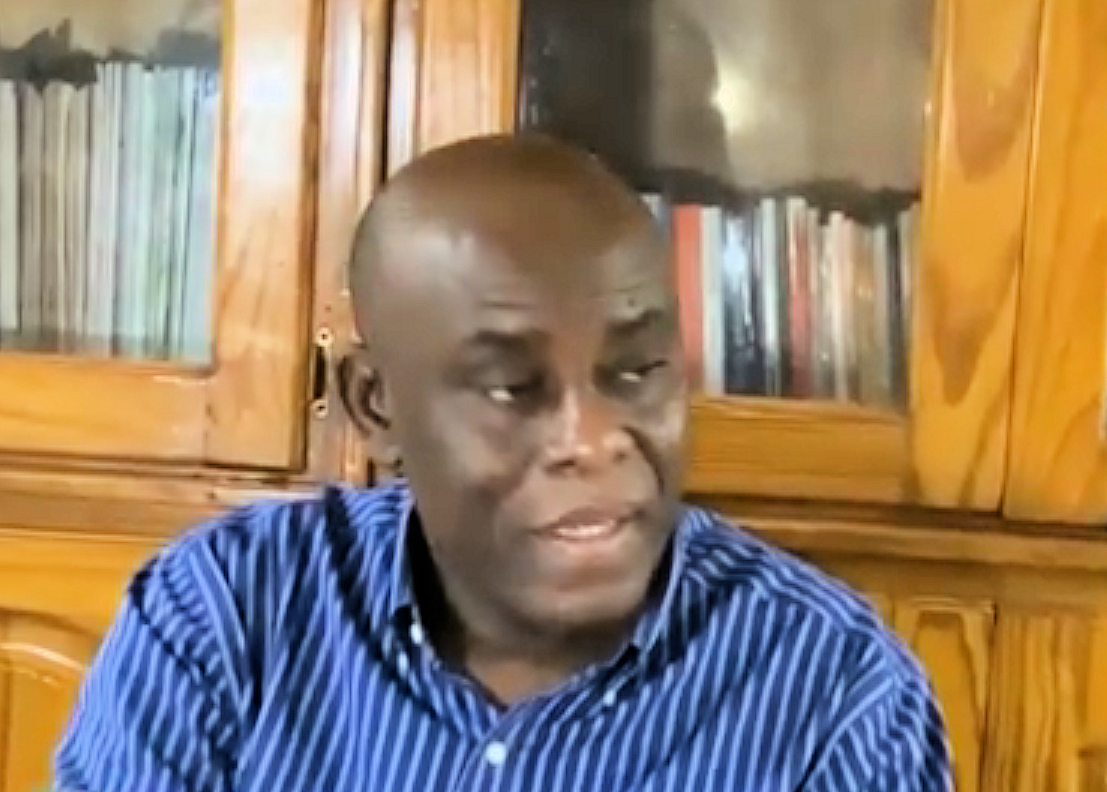
One year after the CARICOM political agreement of Apr. 3, 2024 which established the nine-member Transitional Presidential Council (CPT), Haiti’s situation is disastrous. The failure of this transitional formula is bitter, and popular mobilization demanding the resignation of its members is growing stronger every day, leading to widespread confusion.
Indeed, despite an 11.8% increase in budget allocations for the Haitian National Police (PNH) and the Haitian Armed Forces (FAdH), they are unable to restore public security in almost 90% of the metropolitan area and certain localities in the Artibonite and Central departments. The PNH budget has increased from 29.985 billion gourdes (US$230 million) to 32.935 billion gourdes (US$250 million); FAdH’s budget increased from 6.976 billion gourdes (US$53 million) to 8.376 billion gourdes (US$64 million). The PNH and FAdH, with the support of the Multinational Security Support mission (MSS), have failed to reclaim any of the lost territories or open Haiti’s two main arteries to the North and South, Route #1 and Route #2.
Popular discontent and revolt are growing. Opportunists from the traditional political class are attempting a power bid through a transition using the Supreme Court (Court de Cassation) formula, whereby a judge or judges from that body would assume the presidency.

PNH Director Rameau Normil mustered all police officers to their posts on Tue., Apr. 15, 2025: “By order of the Director General of the Haitian National Police, all police officers without distinction are summoned to their assigned posts on Apr. 15, 2025, starting at 7:00 p.m., until further notice,” reads his directive. To what end? It is not only to stop the steady march of Haiti’s armed groups demanding radical social change but to neutralize the popular mobilizations in Canapé-Vert, Léogâne, and other regions of the country.
Fear is rife in the CPT’s ranks. On Sat., Apr. 12, 2025, the CPT warned the Haitian people about “the strategies implemented by criminals to seize control of the public administration, political power, and turn the country into a narco-state.” They were referring to statements, like one that Jimmy “Barbecue” Cherizier, leader and spokesman of the Viv Ansanm Political Party, made on Apr. 4 that their goal was to march on the Prime Minister’s office and CPT headquarters (Villa d’Accueil) to forcibly oust the de facto Washington-imposed authorities.
Meanwhile, Washington’s foremost agent and strongman in Haiti, Pierre Espérance, leader of the National Network for the Defense of Human Rights (RNDDH), has warned that the Viv Ansanm in jointly planning a coup against the CPT and Prime Minister Alix Didier Fils-Aimé in concert with former Haitian Sen. Guy Philippe, head of the FREN (Revolutionary Force of National Accord) party, and Dimitri Hérard, the former security chief for the late Pres. Jovenel Moïse, assassinated on Jul. 7, 2021.
CARICOM added that it was “deeply concerned” that “a coalition of criminal gangs is threatening to seize power and compel a change in the governance arrangements in Haiti at this time,” i.e. the council established by Washington with CARICOM’s help.
What does CARICOM expect? They have been the midwife of a failed transition, that put in place nine corrupt opportunists without a mandate, without political legitimacy, without constitutional legitimacy, without popular legitimacy, presiding over a “transition” which reinforces the Western powers’ domination over Haiti.

Meanwhile, on Apr. 16, despite some rain, a massive, spirited demonstration gathered many thousands in Canapé Vert with the goal of marching on the Primature with machetes and other crude weapons. Previous attempts to do so had failed. But, to the dismay of many in the large crowd, Canapé Vert’s leader, Samuel Joasil, called off the march, saying he wanted to avoid the loss of life in a planned ambush. Some demonstrators felt Samuel had capitulated to authorities. Time will tell.
The time for compromise is over. The popular masses now realize that they must rely solely on their own strength, their own autonomous organization, to conquer political power and bring about radical changes to satisfy their own class interests.
Last week also saw the repeat of a feat of supreme demagogy on Apr. 17. It was the bicentennial of the imposition of Haiti’s “independence debt” paid to France over the course of more than a century.
French President Emmanuel Macron acknowledged that day that “this decision placed a price on the freedom of a young nation, which was thus confronted, from its very inception, with the unjust force of history.”
To address this injustice, he proposed “a joint Franco-Haitian commission tasked with examining our shared past and shedding light on all its dimensions” which would then “propose recommendations to both governments to draw lessons from it and build a more peaceful future.”
At no point did he raise the non-negotiable demand of all Haitians since President Jean-Bertrand first made it 22 years ago: the financial restitution of the “independence” debt – with interest – which would come to some $115 billion today. France’s response to Aristide at that time was to help with the Feb. 29, 2004 coup d’état against him.
Macron’s flowery evasion is no different than that of French President François Hollande when, during a 2015 visit to Haiti, he acknowledged France’s “moral debt” to Haiti.
Today Macron calls for a “renewed relationship between France and Haiti, based on listening, respect, and solidarity.” Haitians simply need their just demand for restitution met!

Haiti’s progressives must forge tactical alliances with other protest forces in society at large and prepare a minimum program for a socialist alternative. We must deal exclusively with leaders who reject Western powers’s domination of Haiti and fight corruption, in both words and action.
As long as they meet those anti-imperialist criteria and want the removal of the de facto CPT and Prime Minister, all progressive, popular movements from all parts of Port-au-Prince, as well as in the North, Center, and South departments, despite whatever differences they may have had in the past, must unite in action to consolidate national resistance and work for the emergence of a new socialist society.
Budgetary resources of 323.4 billion gourdes (US$2.47 billion) from tax and customs revenues must be channeled to the popular masses to guarantee basic social services for the Haitian population. It is high time to put an end to neocolonial plundering and the waste of the country’s fiscal and budgetary resources; tax breaks and exemptions for the private business sector and the Catholic and Protestant churches must cease.
Last week, the CPT allocated 3.5 billion gourdes (US$27 million) to the Haitian parliament, including 1.8 billion (US$14 million) for the Chamber of Deputies and 1.7 billion (US$13 million) for the Senate, despite the fact that there has been no functioning Haitian Parliament for years now. Furthermore, the Haitian state’s provision of foreign currency to the private business sector must end.
The national awakening for a socialist project in Haiti has finally arrived.
We will never cease to denounce the reactionaries and opportunists in Haiti, in the pay of Western powers, who seek to hijack the popular masses’ struggle. Let us draw inspiration from the revolutionary struggles of the heroes of Haiti’s national independence, the Latin American revolutionaries, and the revolutionaries of the Sahel countries in Africa.
Our duty is to seize power today to satisfy the people’s demands. No to the CPT, no to the MSS, long live the resistance of Haiti’s popular masses.
Liberty or Death! Homeland or Death!










[…] As France Offers Empty Words, Haitians Must Seek a Socialist Alternative Haiti Liberte […]